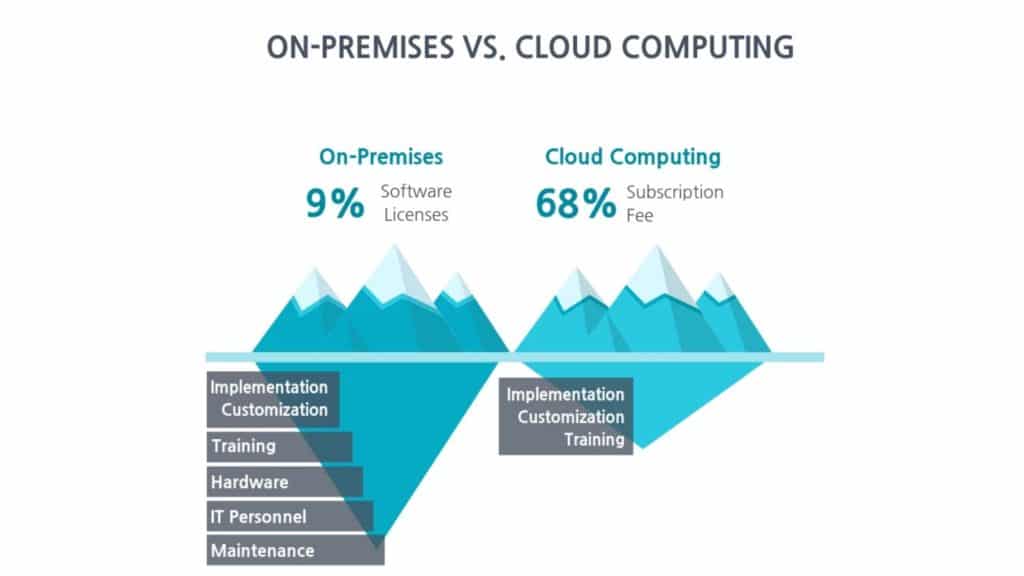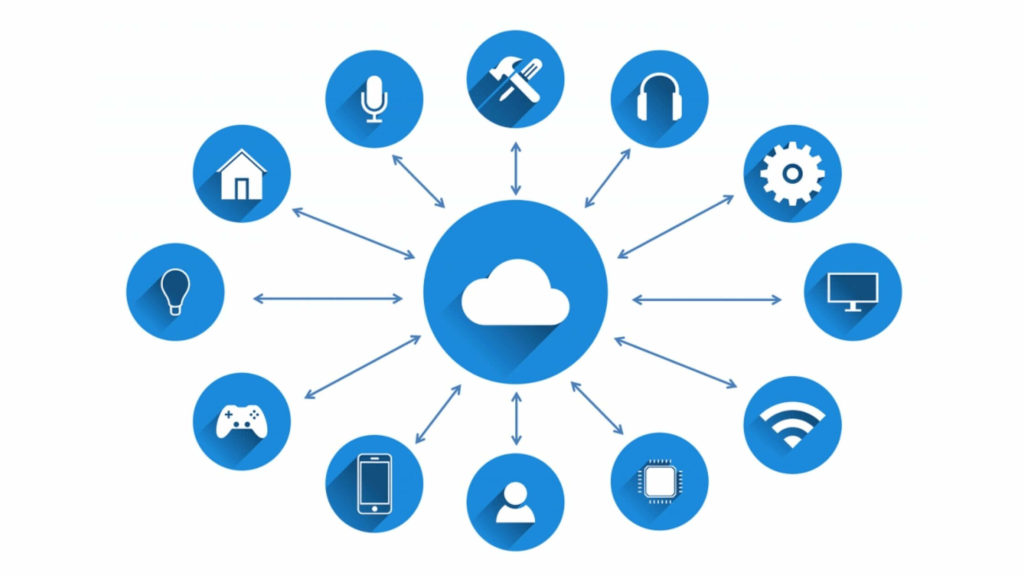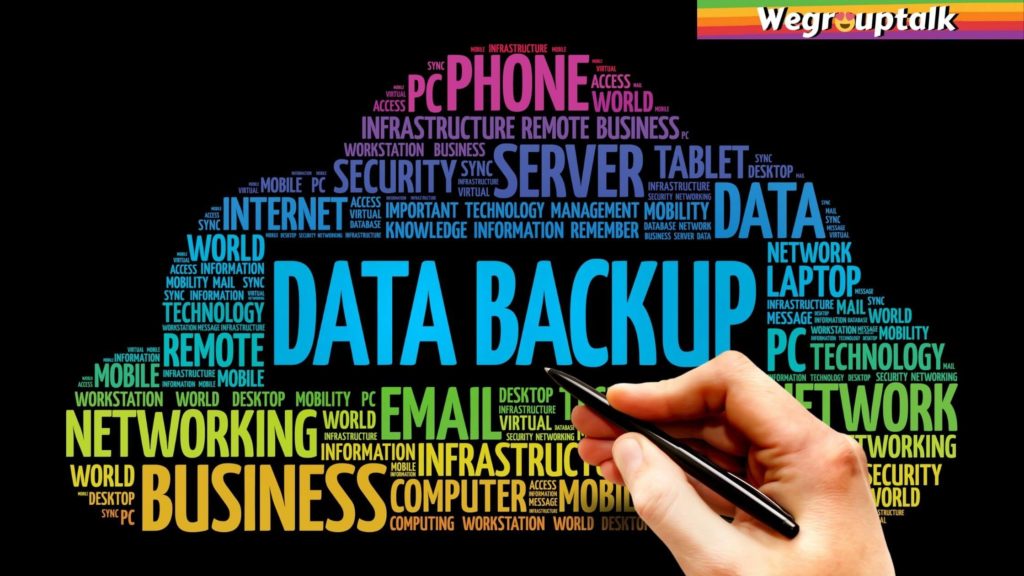In simple terms, the definition of cloud computing is to store and access all the data and programs on the internet rather than your PC’s hard drive. This generally defines the data centres that are available on the internet for the users.
History of Cloud Computing
The term “cloud computing” was bought in the year 1996 within a Compaq internal document. J.C.R Licklider invented the concept, the first director of information processing techniques office in the year 1960. The idea of computing Licklider caught fire when Bob Taylor and Larry Roberts in the year 1969 came out with ARPANET development (Advanced Research Project Agency Networks). Then in the year 1990, the arrival of SAAS happened. When many computers were connected as the technology became more affordable, salesforce was the first-ever company to give applications on the internet.
Then they also bought in (Software as a Service) which has abbreviated as SaaS. The industry caught the track because of extensive growth in video, music, and other media platforms. The clod was earning progress in the mid of 1990s when the digital sphere started growing with google and Microsoft were building more networks with their virtual services. And then the cloud was everywhere with its PaaS, SaaS, IaaS.
The access of cloud was getting a permit for healthcare, finance, entertainment, and government. Then the industry caught up with digital platforms’ speed with more things coming in google docs services. Apple also launched its iCloud.
The cloud came in two parts public and private. Out of which, the public cloud was providing computing services by third-party providers. It was made available to people who wish to purchase and use them. Simultaneously, the private cloud is more for the needs where sensitive data needs adequate security and safety. Privat cloud is the data centres in controlled, secure systems.
Why is cloud computing critical?
We cannot deny that the impact of technology on businesses in today’s era is irreplaceable. There are many reasons for the importance of cloud computing; some of them are the following:
1. Cost-effective
As mentioned above, cloud computing is a technology that provides services for the company or businesses on their demand. So the primary advantage that would bring the focus of many companies on cloud computing is its cost-effective nature. The only requirement is that you will pay for what you will use. This gives the businesses a space to save their finances and put it in the areas where they need to invest for more growth and remain competitive in the market.
e.g., if you are running a data center on your location of the business, it will undoubtedly take a cost for that, which might seem a wastage to you when you have an option like cloud computing. If you have a location data center, you will have hiring staff, hardware, developing apps, and many others. To save these, cloud computing comes out to be the best.
Simultaneously, speaking about cloud computing is a subscription-based model that excludes purchasing, maintenance, and labor costs. You have to pay just the monthly subscription fee that too for the services you are using. In case you do not feel the need to use their cloud computing services anymore, you can stop paying for the subscription. Things included in cloud services are Infrastructure, IT, software, etc.

2. Digital transformation
Before the COVID-19 pandemic, some digital transformations were happening around. But with the pandemic bought by COVID 19, there has been an extensive number of digital changes. If we see it is one way to remain competitive in today’s market for the businesses. Today’s markets rush with digital, and people prefer digital over everything; this has made cloud computing all the more effective. With this technique of cloud computing, a lot of company’s are migrating everything to the cloud. However, we cannot neglect that some businesses are still very hesitant about digitally transforming this transformation.
But some companies are reliable and will also ensure proper cloud enablement to you. It is suitable for businesses to adapt to this cloud computing technique because the traditional ways are getting closed sooner or later. They are either becoming costlier and outdated due to this cloud computing might become a requirement for the organizations.
3. Effective creation
Businesses today want to serve their clients better, developing many custom software solutions and in-house apps. In cloud computing, it offers various services, and out of them, you can choose and use the ones you require. So, in this case, you will not have to waste your organization’s finances in developing apps or providing other services to satisfy the clients. You can easily do it with the help of cloud computing. One of the examples of this is a platform as a Service (PAAS). Businesses can depend more on this cloud computing technique because it can make them feel reliable on the services offered. They can use them effectively as per their need.

4. Data backups and recovery
We live in an era where numbers need space for storage. Almost everything around has data, and it needs proper safety and security. There is extensive use and need for data in today’s world. Businesses, through the method of cloud computing, can store their data on the cloud easily. And similarly, the data can be useful and utilized from any corner of the world, especially for the remote workers and the offices.
Cloud has a unique function called integrated data backup and recovery. This function gives you one more reason to trust the cloud because it keeps your data safe all the time. You will not have to bother about cyber-attacks, natural disasters, or even thefts that happen physically.
The way the cloud works are that it will never keep your data in one place. It will spread it into segments and encrypt it and then distribute it to the other locations. So if any major cyber-criminal or hacker is trying to hack your data, it would be incomplete and of no use. If there is any backup you need, you will have your data stored in the cloud, which means that you can recover the data and resume all your business operations.

5. Scalability
By scalability, we mean that the businesses have to change their size or scale. The market requires effective company scaling nowadays, which means that the trades you can scale up or down quickly with the changing market trends have an advantage amongst their competitors. Similarly, cloud computing provides scalability to businesses.
An example of this could be infrastructure as a Service, i.e., IaaS, which benefits the companies to have an entire IT infrastructure without investing in the hardware. Considering the business market’s current needs, you can also add or remove servers in your infrastructure. This feature will allow your company to function efficiently and give it space to scale quickly.
Even the software as a Service, i.e., Saas, will also benefit you by using an app available on any organization’s device. This way, your company can also use the latest software solutions. You can also make the payment for these apps whenever you need them.
Pros of Cloud Computing
- It is financially very convenient for the customers as there are zero capital costs involved. The payments you make are on the services you use.
- You will not have to invest in your equipment and services.
- You will not have to worry about upgrading your OS, and the cloud will do it.
- No worries about having an IT specialist or department. The cloud will do that for you.
- It is a platform where you can also start projects with more considerable start-up costs involved.
Cons of Cloud Computing
- It requires a very smooth and good speed of internet with an adequate bandwidth. To upload and download the cloud files, you will need access to a good internet connection.
- As the cloud requires useful speed internet in case you do not have one. You can experience business downtime. And in today’s competitive world, no business can afford to have a loss due to downtime or interruption of resources.
- As you are not the one who owns clod, so you have limited control of the cloud’s infrastructure.
- The cloud has a huge list of services it offers but using these services comes with many restrictions and lesser flexibility.
- You can save the expense of infrastructure and management, but the cloud has costs to it which you will need to pay. But thinking about the traditional ways, you will need only a one-time investment.
- To complete the cloud data, you will have to purchase the costlier private cloud option/ hybrid cloud option.
- The cloud provides the option to migrate to any other service provider whenever you feel the need, but this is a very time-consuming process.
Hence, it is a pay-for-use basis software that has attracted many digital platforms or organizations thinking of making a digital shift. Digital cannot be ignored in today’s time where everything comes with technology and from technology. Now or later, the business, organization, or platforms will require digital transformation those who are still working on the traditional ways.
Cloud computing is anew of working paperless with all the digital benefits of data storage, recovery, safety, etc. In this, you need to pay for what you use. This makes it all the way more attractive for businesses to use cloud computing.
Follow us on FACEBOOK, INSTAGRAM and TWITTER to stay connected.
Also Read- What is Edge Computing? How it is changing the network?




